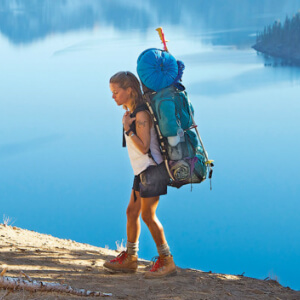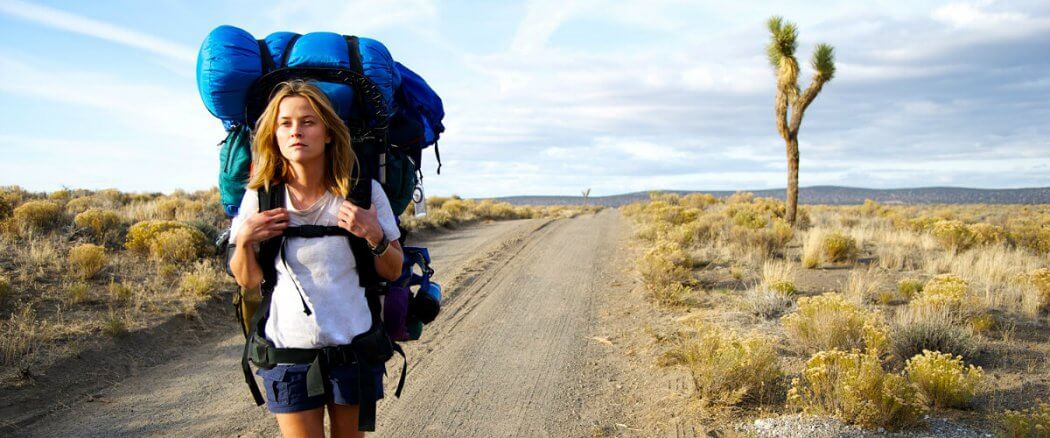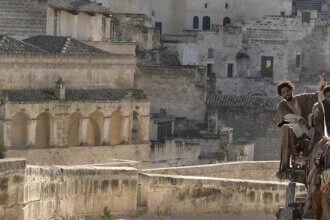Grief happens on a spectrum between two poles. At one extreme, painful memories and raw emotions are stuffed deep inside and buried under layer after layer of thick callous. Any twinge of sadness that manages to work its way through is quickly strangled, along with whatever part of our humanity it attached itself to. On this end of the spectrum, people lead quiet, detached lives, abiding by the unspoken rules of their community, playing it safe so as to avoid the tiresome work of suppressing new trauma.
At the other extreme, emotions are like raw nerve endings. People over here may appear dangerous to those at the subdued end of the spectrum. Aware of their emotions, they have learned to let them out. Sometimes appropriately… sometimes not. There’s a wildness about them as they come to terms with the wounds and scars that made them who they are. But sometimes the journey to healing requires an amount of savagery.
A Spiritual Pilgrimage
Wild is the true story of Cheryl Strayed’s (Reese Witherspoon) solo 1,200-mile hike from Mexico to Canada in 1995. More than documenting her travels, this film tells of her journey “from lost to found on the Pacific Crest Trail.” Those who saw the trailer and were expecting a location film exploring rugged west coast wilderness may be disappointed at first. Unlike films such as David Lynch’s The Straight Story (1999) or Michael Mann’s Last of the Mohicans (1992) where the landscape offers a sense of the transcendent beauty of America’s diverse geography, the barren deserts, rugged mountains, and lush rainforests of Wild serve primarily as a backdrop for Strayed’s spiritual pilgrimage. Nevertheless, Witherspoon’s Oscar-nominated performance will soon have even the most biophilic viewers captivated.
 If at first, the title seems to refer to California’s desolate backcountry, it soon becomes apparent that “wild” has at least as much to do with Strayed as it does with the howling coyotes, rugged peaks, and icy streams she encounters on her way. Through flashbacks and brief confessions that appear iteratively in the film, the reason for her PCT trek becomes clear. Without spoiling the story, it is enough to say that many of us can point to persons we know who reacted to trauma by lashing out in erratic behavior for a period. If Wild offers us anything, it is a message of hope that we should not give up on anyone, no matter how lost they might seem.
If at first, the title seems to refer to California’s desolate backcountry, it soon becomes apparent that “wild” has at least as much to do with Strayed as it does with the howling coyotes, rugged peaks, and icy streams she encounters on her way. Through flashbacks and brief confessions that appear iteratively in the film, the reason for her PCT trek becomes clear. Without spoiling the story, it is enough to say that many of us can point to persons we know who reacted to trauma by lashing out in erratic behavior for a period. If Wild offers us anything, it is a message of hope that we should not give up on anyone, no matter how lost they might seem.
Redeeming the Past
Wild is deeply philosophical, though that may not become clear until the final monologue:
“What if I forgave myself? I thought. What if I forgave myself even though I’d done something I shouldn’t have? What if I was a liar and a cheat and there was no excuse for what I’d done other than because it was what I wanted and needed to do? What if I was sorry, but if I could go back in time I wouldn’t do anything differently than I had done?… What if yes was the right answer instead of no? What if what made me do all those things everyone thought I shouldn’t have done was what also had got me here? What if I was never redeemed? What if I already was?”
With these questions, Wild offers a way to redeem past mistakes. Our choices make us who we are, and sometimes wholeness only emerges after painful trials. All things may indeed work together for good, even our destructive choices.





